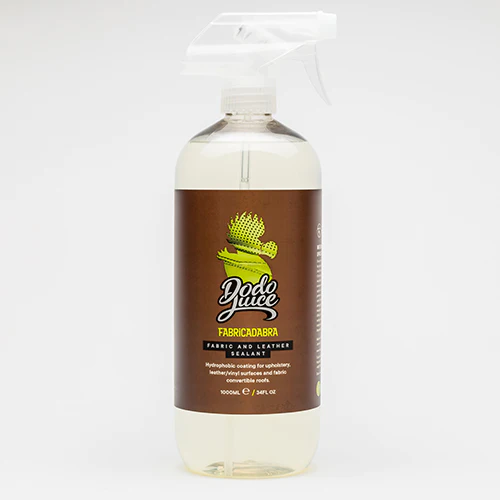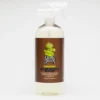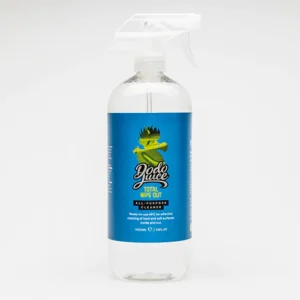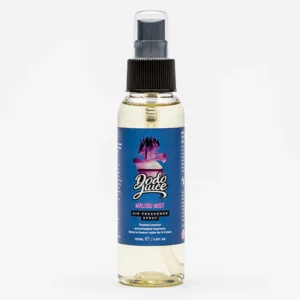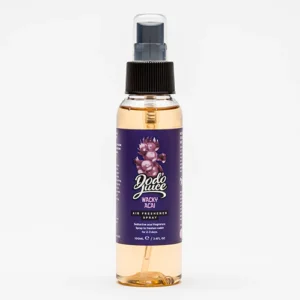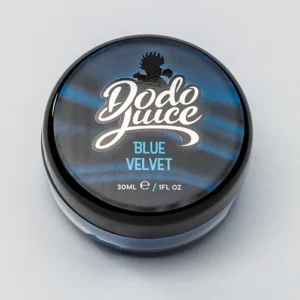Fabricadabra 1 litre spray – Sealant fyrir Tau sæti blæjur og fleira
Lýsing
Fabricadabra is a cost-effective nano-tech fabric sealant for using either to waterproof interior upholstery (to make it more resistant to spillages, and easier to keep clean) or to seal a fabric/canvas roof of a soft-top convertible.
Due to the nature of fabric sealants, results vary widely so don’t expect it to bounce water beads off shagpile carpet with just one light mist.
It delivers best results when applied to a densely woven fabric via a brush or roller (saturation rather than light spraying) in multiple coats. This is because fabric and upholstery can be very uneven and inconsistent microscopically, with lots of protruding filaments, pores and air traps. If a water molecule can find a way through, the fabric will absorb. Therefore, complete coverage and a full coating can be a challenge to achieve and may not even be possible with certain materials (carpets will be far worse than velour seats or soft top roofs).
Fabricadabra is best applied neat for maximum effect, but it can be applied to a wet (freshly cleaned and rinsed) surface to help it flow – although we definitely recommend a follow up coat with this method.
For seats/interior upholstery, ensure the surface is as clean as possible and apply Fabricadabra either as a spray (inconsistent, not as effective, risk of overspray to other surfaces) or via a brush/roller (recommended). If applied using a saturation technique, apply it to complete panels in a section at a time, up to stitch lines, creases, folds or other natural material breaks. This helps prevent watermark effects. Allow to dry and then repeat process. More coats generally mean more water repellence.
For soft-tops, ensure the canvas/fabric is washed, rinsed and clean (a low foam shampoo solution may suffice or use an APC (All Purpose Cleaner) or Fibre Reviver upholstery cleaner and rinse thoroughly afterwards so that no foam remains). Then either allow the roof to dry for maximum performance or apply the product to a wet surface for better flow. You can apply Fabricadabra either as a spray (inconsistent, not as effective, risk of overspray to other surfaces) or via a brush/roller (recommended). If applied using a saturation technique, apply it to complete panels in a section at a time, up to stitch lines, creases, folds or other natural material breaks. This helps prevent watermark effects. Allow to dry and then repeat process. More coats will mean more water repellence. It may be tricky to apply multiple coats in one go (not everyone has a garage and a car they can leave unused for days on end) and you may therefore choose to build up protection over subsequent weeks – but be careful not to seal contamination in. A light clean with a mild shampoo solution may be required before a subsequent coat. After application, try and keep the hood dry for 24 hours. Rain can pull sealant off onto surrounding paintwork if the sealant has not cured, causing streaks (see below). Garage application is the ideal state of affairs, or wait until a long period of fine weather.
Longevity of the coating will depend on numerous factors, mainly number of coats and wear/usage. The driver’s seat will get more use than the rear bench, for example. If the surface is well-prepped and multiple saturation coats are applied, we would suggest 3-12 months of protection on interior upholstery and 3-6 months of protection on soft-top roofs (or much longer on garaged cars).
As ever, we can only give general guidance due to the variables involved. It is often best to test on an inconspicuous, small area to begin with, apply a process of multiple coats and then test the results until happy with the overall approach. Only then do you extend it to the complete interior or roof. Buy a bottle and play around; it can often answer more questions in a few hours than days on search engines, forums or YouTube.
Please note that overspray droplets onto bodywork or interior surfaces, or run-off residue (caused by rain after soft top application etc) may be unsightly and difficult to remove. Always be careful during application and do all you can to avoid these scenarios. If Fabricadabra does need to be removed, use a strong solvent/panel-wipe (Stripp-Ex) as soon after application as possible. Otherwise claying, machine polishing or more aggressive abrasive techniques may need to be employed (depending on whether the finish can take it). If in doubt, don’t apply the product at all


